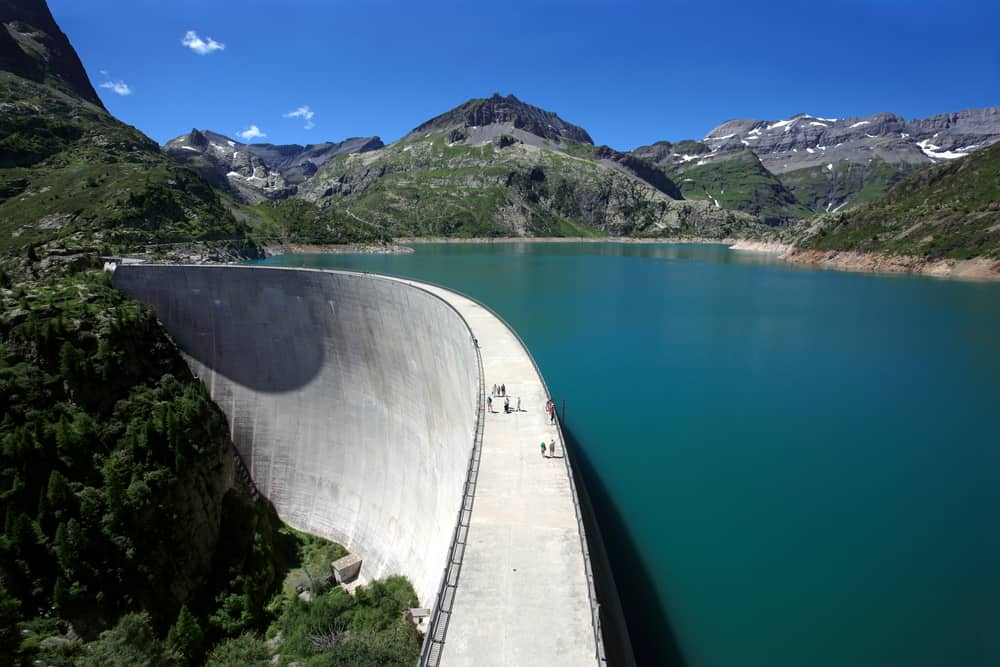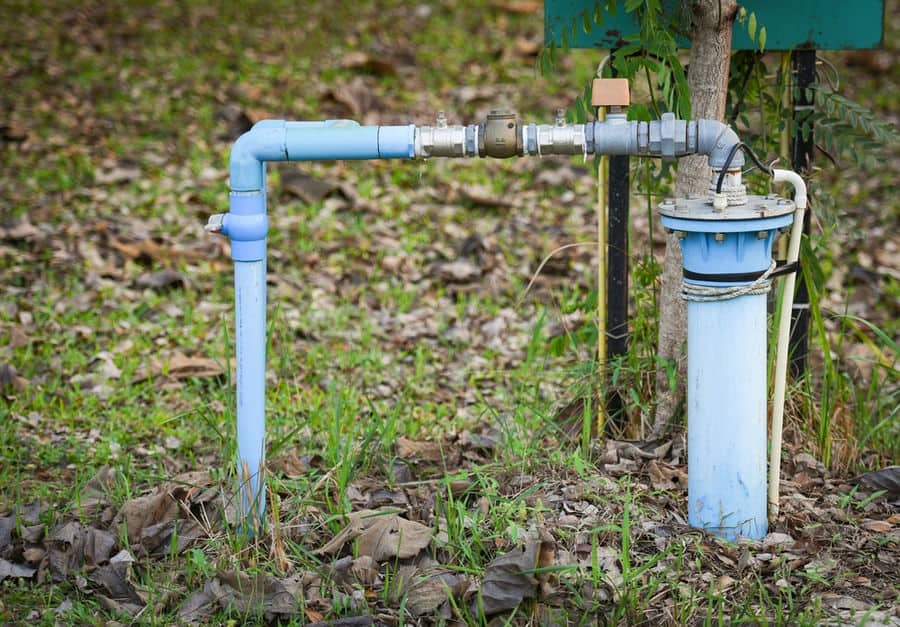Are you searching for information on how does well water work? Are you interested in learning more about well water vs. city water? If so, you’ve landed on the right page. In this article, we’re going to talk about what a well is, how does well water work, well water vs. city water, and more.
What Is a Well?
A well is a hole in the ground that allows us to get water from an aquifer. An aquifer is essentially an underground layer of rock, sand, and silt that contains water. From the surface, we can’t see the water. However, it’s there, and if we dig down deep enough, we’ll reach the aquifer and be able to bring the water back to the surface.
Water gets into aquifers via rainfall. The rain falls to the ground and gradually makes its way down to the aquifer. See Aquifers and Groundwater from the US Geological Survey for a deep dive into aquifers.
Americans Still Use Wells
Well water is still pretty common in the US. According to the US Geological Survey, over 43 million Americans get their drinking water from private wells.
Three Parts to a Well
A well has three essential parts: The well casing, a pump, and a filter. The casing lines the hole down to the aquifer, the pump brings the water up out of the aquifer, and the filter removes any contaminants.
Not All Wells Are the Same
There are various types of wells (drilled, driven, and dug), and some are deeper than others. Building a well involves finding the best location to access water from the aquifer.
Building a Well Is Not a DIY Project
Constructing a well isn't as easy as digging a hole in the ground. It involves knowing where to dig to extract water from the aquifer and knowing the regulations regarding well construction. Therefore, only professionals should build wells.
Wells Need to Be Maintained, and Well Water Needs to Be Tested Periodically
Wells need to be well maintained if they're going to be a reliable water source. One aspect of well maintenance involves periodically testing the water for contamination. Periodic testing is necessary because pollutants can get into the aquifer, and if you use that water, you could get sick.
Well water should be tested at least once per year. Well water should also be tested if there's a change in how it looks, smells, or tastes or if you become aware the aquifer has been contaminated.
How Does Well Water Work vs. City Water?
City Water
The city water coming out of your tap originates in various surface water sources, including rivers, lakes, and streams. City water also comes from reservoirs.

City water is regulated by the Environmental Protection Agency (EPA). They make sure it doesn't contain anything that could harm your health, such as arsenic, uranium, pesticides, fertilizers, sewage, etc. City water is treated to remove pollutants before getting to your home.
Whenever your local water supplier determines that city water is contaminated and no longer meets the EPA's standards, they are required to alert the public. The public can also find out about city water quality by reading the Consumer Confidence Report.
EPA regulations do not apply to well water from privately owned wells. The owner of the private well is solely responsible for making sure the water is free from contaminants and safe to drink.
For more information about water quality issues see Why Is My Water Brown All of a Sudden?

Well Water
As we mentioned above, well water is untreated groundwater from an aquifer. Once the well is built and connected to your home, the water is pumped to the surface and comes out of your tap. Well pumps require electricity to work. Therefore if you lose power, you lose access to your well water. Many people who rely on well water also have a backup generator, just in case.

If well water isn't filtered before it enters your home, it could contain contaminants. These vary depending on your location. However, they could be things like arsenic, iron, or sulfur gas. Keep in mind that certain contaminants can't be smelled or tasted. The only way you'll know they're there is to test the well water.
Since the EPA does not regulate well water, it's the well owner's responsibility to ensure the well water is safe to drink. It's also the well owner's responsibility to test the water if there's a problem. For example, if there's a change in the way the water smells, tastes, or looks, or if there has been an incident that might affect the quality of the water—for example, a flood. The private well owner is responsible for having well water periodically tested as a matter of course.
Well water is usually hard water because it contains higher levels of minerals like calcium and magnesium. Because of this, well water can be hard on appliances. The hard water deposits build up in the appliances' plumbing leading to repair costs. Hard water also stains toilets, shower stalls, and other fixtures. Even after scrubbing them clean, they still look dirty because of the mineral deposits.
Whole House Water Filtration Ensures Safe City Water and Well Water
Whether you have city water or well water, a whole house water filtration system is a way to ensure the water entering your home is safe and free from contaminants. Because a whole house water filtration system is installed at the point where the main water line enters your home, you don't need a filter on every tap.
If you're concerned about your water quality and you're in Benicia, CA, or the surrounding area, contact us today. We'll come out, assess your water quality, and then determine the right filtration system for you.






